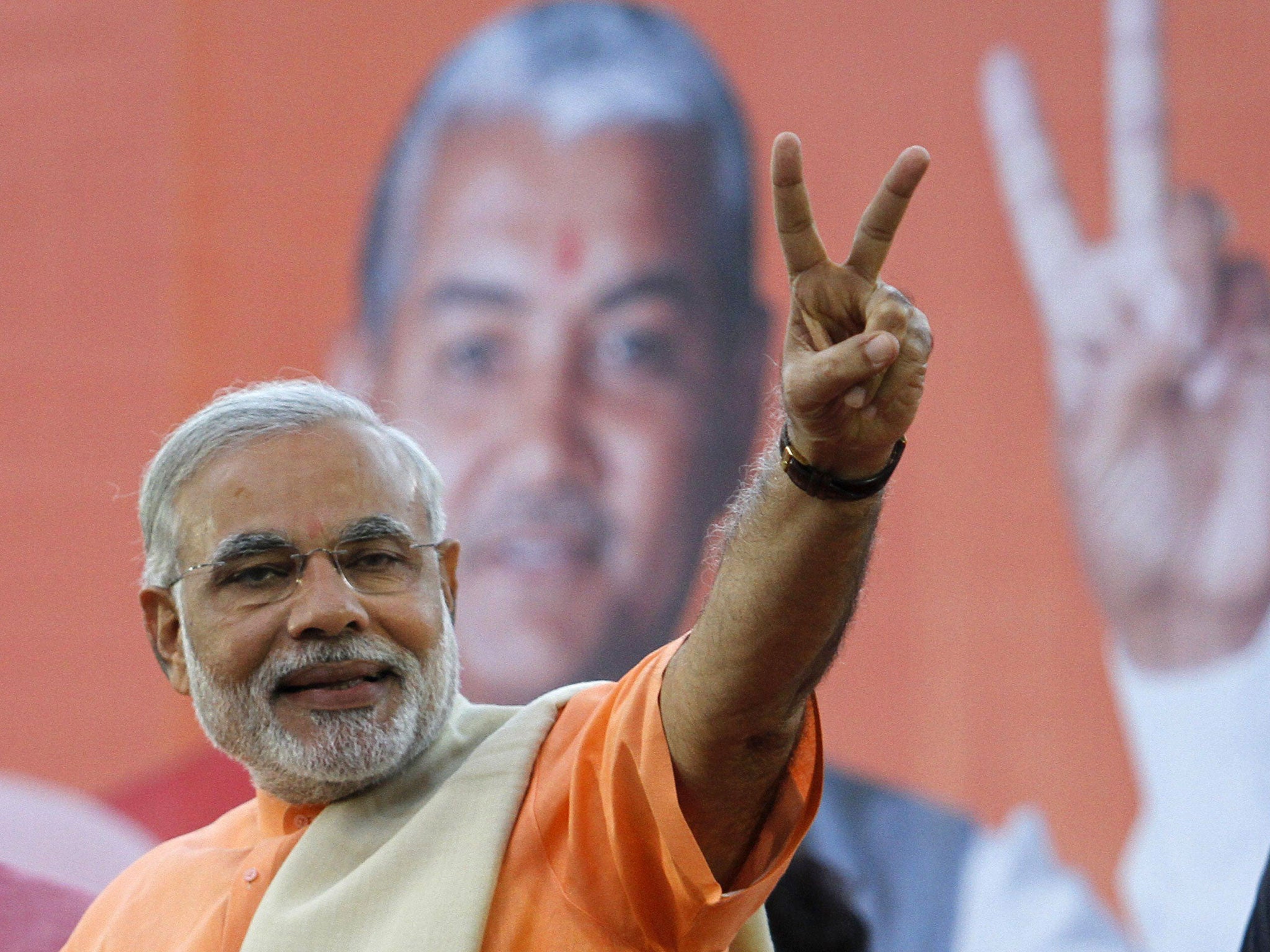State win opens India up to Hindu hardliner
Narendra Modi won a convincing victory in the Gujarat state election

India’s most controversial politician has taken what his supporters believe is a step closer to becoming Prime Minister by securing his third electoral victory and positioning himself up for a general election showdown, perhaps against Rahul Gandhi.
Narendra Modi won a convincing victory in the Gujarat state election, cementing his position as a rising figure in India’s main opposition party and pressing his case to be its Prime Ministerial candidate in 2014.
“Voters know what is good for them. Voters have an eye on the future,” Mr Modi declared in a victory speech in Ahmedabad that was televised across the country. “I take pride in the fact that Gujarat’s voters have voted for good governance and development.”
Mr Modi led the Hindu nationalist Bharatiya Janata Party (BJP) to its fifth successive victory in the western Indian state, securing at least 115 seats out of 180 in the local assembly. It was less than some had predicted – Mr Modi among them – but underlined his solid base.
“I think this makes him more or less primus inter pares [first among equals]. How you actualise that is the next question,” said Swapan Dasgupta, a leading conservative commentator. “It now depends on how much momentum he can build, how much pressure from the grass roots he can place on the party leadership.”
Mr Modi has always been popular with the more hardline element within the BJP. But he also has many opponents, both within the party and outside. Most importantly, in the eyes of many he remains linked to the killing of hundreds of Muslims, slaughtered in a wave of violence that swept through the state in 2002 at a time when Mr Modi was chief minister.
Earlier this year, one of Mr Modi’s former ministers, Maya Kodnani, was jailed for 28 years after being convicted of her role in the killing of 97 people. The court was told she had handed out weapons. Mr Modi denied he looked the other way while the violence took place and a special inquiry cleared him, yet for large numbers of Indians Mr Modi remains a toxic figure.
“I do not think [he is ready to become Prime Minister]. He is a polarising figure,” said Fr Cedric Prakash, a rights activist from the state. “For a national figure one needs to be more inclusive. You cannot be a one-man show.”
During the campaign, Mr Modi promoted his record in overseeing development in the state and attracting foreign and domestic businesses to invest there. Earlier this year, the British government ended a 10-year boycott of the chief minister in a move that was seen as further recognition of both the business opportunities in the state and Mr Modi’s growing status within India’s political establishment.
In a move some commentators saw as perhaps symbolic, Mr Modi chose to deliver his victory speech in Hindi, the lingua franca of large parts of India, rather than Gujarati, the local language he had used in the campaign.
The ruling Congress Party will be disappointed it did not do better in the state, despite dispatching such high-profile figures as its leader Sonia Gandhi, and her son, Rahul.
The party has said Mr Gandhi will head its 2014 general election campaign but with his continued apparent reluctance to put himself forward has stopped short of naming him as its candidate for Prime Minister.
Subscribe to Independent Premium to bookmark this article
Want to bookmark your favourite articles and stories to read or reference later? Start your Independent Premium subscription today.

Join our commenting forum
Join thought-provoking conversations, follow other Independent readers and see their replies